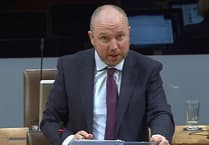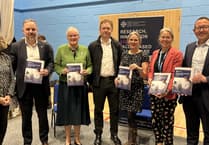GP practices serving the most deprived parts of Wales are under-resourced, overworked and facing collapse despite experiencing the greatest patient need, a committee has heard.
Adrian Edwards, a professor at Cardiff University, gave evidence to a Senedd health committee inquiry on the future of general practice on 6 November,
Prof Edwards reminded Senedd members of the inverse care law – a term coined by Julian Tudor Hart, a GP in Glyncorrwg, Afan valley, in 1971.
It states the availability of good medical care tends to vary inversely with the need for it in the population served, so those who need health care most often have the least access.
Prof Edwards warned the UK is lagging behind other countries, with 45 GPs per 100,000 population compared with Australia (121), Canada (103) and New Zealand (74).
He added that Wales was bottom of the UK table, according to latest statistics.
Prof Edwards said the number of partners has declined every year for a decade.
He told the committee the number of patients per full-time GP has increased in that time, with the total number of consultations also rising since 2019.
Prof Edwards said: “What we also have is an inverse workload law. In the affluent areas of Wales, the average number of patients per GP is 2,100 and in deprived areas it’s 2,400.
And, by the way, those practices get seven per cent less income to provide those services.”
He explained doctors in the poorest areas have more patients to start with, who present about twice as often as those in more affluent areas.
Prof Edwards said the number of GPs has been largely flat since 1947, with resources being funnelled into hospitals “trying to do cure and not doing prevention”.
He said the proportion of NHS spending on general practice in Wales has fallen from 11 to 7.6 per cent over 20 years.
He cautioned that focusing on reform of the Carr-Hill formula used to allocate funding to GPs is a zero-sum game.
“If you help someone, you’re taking away from someone else,” he said.
Prof Edwards said 10 per cent of GPs aged under 40 left the workforce in 2023, warning: “We’re haemorrhaging, we’ve got to do something about it immediately.”
Deep End Cymru, a network of GPs working to improve care in the most deprived areas, warned practices in less well off parts of Wales are “quietly drowning”.
Neil James, chair of Deep End Cymru said: “What we have seen is practices collapsing, going to the wall in many of these areas.”
Prof Edwards raised statistics showing 10 per cent of practices in the poorest areas closed or merged, compared with 2.8 per cent elsewhere, over the past three years.
Deep End Cymru’s evidence laid bare the human cost of such inequalities.
The network of 91 GP practices warned women in the most deprived communities spend an average of 16.9 more years living in poor health.
For men, the gap is 13.3 years.


_cropped.jpeg?width=209&height=140&crop=209:145,smart&quality=75)

.jpeg?width=209&height=140&crop=209:145,smart&quality=75)
Comments
This article has no comments yet. Be the first to leave a comment.